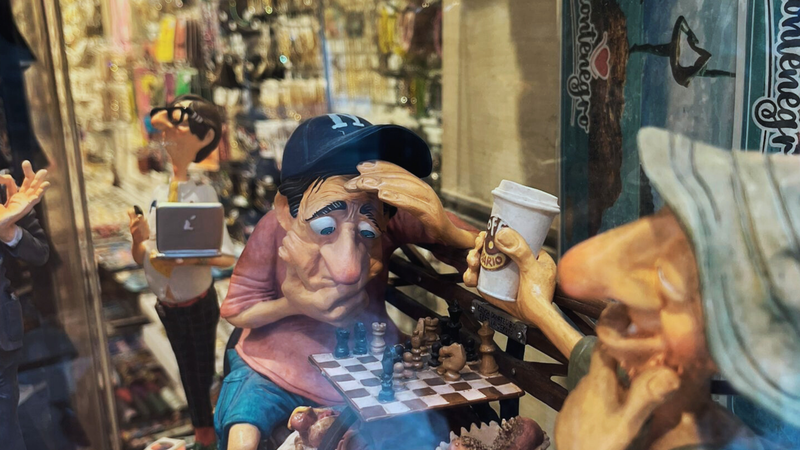
The Comfort of Repetition
When repetition becomes a strategy.
Facts alone can’t move the world.
Chess pieces know this humbling wisdom best.
The pawns march square by square, bored of the same path that may never reach the square of transformation. Diagonal captures feel like a treat for the steady workers tracing the same data paths every single day.
Knights hop in volatile patterns they can’t escape - the same damn L-letter repeating itself until the excitement flattens back to 0.0.
The bishops hunt from their long diagonals, enjoying more freedom yet never crossing onto the opposite color. Jealousy is only natural when you’re stripped of the joy of full color spectrum and forced to move in black and white. Shady rules, at best.
Rooks enjoy their straight lines until being too straightforward hits them with the sobering voice that whispers: there are other directions. Who listens to the chattering voices anyway?
The queen rules the board, proud of her vast movements, yet even she can’t call herself the strongest, because “the strongest” belongs to the past. Tradition. History. Middle Ages nostalgia. The joy of following rules written by human ghosts.
And the king, sitting at the altar of the game. All that power, yet his importance fragile, his crown slipping away at every opponent’s march. Even a pawn can bring him down.

However, the pieces didn’t invent their own rules. They were generously assigned their roles (God bless the human maker). But safe and predictable movements in life have much to thank to the comforting myth of talent and the habit of memorization, repeating what we already know, yet never daring to rise to the next level.
A messy position, full of unexplored potential.
Frodo’s quest for the ring.
Harry Potter’s trick to defeat Voldemort so we don’t have to watch him anymore.
And Snape - the hero of the unknown, walking that blurry line between darkness and light like a true endgame piece.
Engines reinforce our repetitive movements.
We nod to the circulating evaluation lines, celebrating when we guess right, yet progress stands still.
We’ve outsourced courage and exploration to a machine’s precision.
It’s good to risk imperfection from time to time.
We’re not really going to fall out of bed just because we are exploring the board differently.
Reaching our own conclusions - trust me, you can come up with a few on your own.
And perhaps, in our own quest for the ring to rule them all, we finally stretch that part of the brain that rests suspiciously idle.
All it takes is one imperfect move to start the real game.
You may also like
 WGM jovanaeric
WGM jovanaericChess Oracle’s Riddle Series (4)
Riddle series, week four. Dropping four new ultra-minimal challenges. WGM jovanaeric
WGM jovanaericChess Oracle’s Riddle Series (3)
Riddle series, week three. Dropping three new ultra-minimal challenges. WGM jovanaeric
WGM jovanaeric